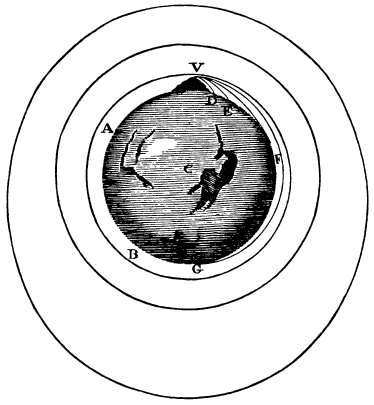Some further notes, a bit more miscellaneous this time, from George Polya’s Mathematics and Plausible Reasoning, Volume I:
—
Polya often uses the phrase “Patterns of …”. It sounds like he uses it in the same way Bukvich does when he says “In the style of …”. This is how you really learn stuff – hard work with an aim toward mixed imitation.
Flex you music composition muscles by rewriting this Telemann Sonata in the style of Theolonius Monk’s ‘Round Midnight. What are you waiting for? Go do it. Class dismissed.
Stuck on this engineering problem? Try manipulating it in the same way that Euler did when he hit upon such and such a useful trigonometric manipulation. You might discover something you hadn’t noticed before.
—
To be a good mathematician, or a good gambler, or good at anything, you must be a good guesser. In order to be a good guesser, you should be, I would think, naturally clever to begin with. Yet to be naturally clever is certainly not enough. You should examine your guesses, compare them with the facts, modify them if need be, and so acquire an extensive (and intensive) experience with guesses that failed and guesses that came true. With such an experience in your background, you may be able to judge more competently which guesses have a chance to turn out correct and which have not.
-p.111
I’m going to rewrite this paragraph for musicians.
To be a good pianist, or a good violinist, or a good trumpet player, you must be a critical listener. In order to be a critical listener, you should, I think, have naturally good pitch and rhythm differentiation to begin with. Yet, to have a naturally good ear is certainly not enough. You should examine what you hear, compare them with recordings and with what your teacher says, modify your expectations, and so acquire an extensive (and intensive) experience with listening and attempting to reproduce sounds. Sometimes you will fail sometimes you will succeed. With such an experience in your background, you may be able to judge more competently when you listen. You will have a better chance of being correct with rigorous practice.
—
Be careful with your analogies!
An analogous case. The problem is to design airplanes so that the danger of skull fractures in case of accident is minimized. A medical doctor, studying this problem, experiments with eggs which he smashes under various conditions. What is he doing? He has modified the original problem, and is studying now an auxiliary problem, the smashing of eggs instead of the smashing of skulls. The link between the two problems, the original and the auxiliary, is analogy. From a mechanical viewpoint, a man’s head and a hen’s egg are roughly analogous: each consists of a rigid, fragile shell containing gelatinous material.
-p.25
This immediately brought to mind a recent episode of MythBusters where our heroes were trying to simulate the smashing of a beer bottle on a person’s skull. They devised a type of plaster to stand in for the bone in the forehead. I kept thinking the entire episode that the plaster looked too fragile – real bone is probably tougher than that stuff. The same goes with eggs. You may learn something via the analogous experiment, but I would be careful not to infer TOO much. An egg shell is not so much the same as a head. To move an analogy in another direction, a psychological experiment involving a small sample set cannot be safely construed to a large population. This happens WAY too often.
—
I like this definition of what constitutes a “good” example:
A case is instructive if we can learn from it something applicable to other cases, and the more instructive the wider the range of possible applications.
-p.17
In a good novel, you can see yourself or someone you know in the characters. In a bad novel, they are utterly unique. (Hint: This is what is usually going on in bad sci-fi or fantasy literature.)
—
Against “genius”:
“He was a genius!”, some people will answer, and of course that is no explanation at all. Euler had shrewd reasons for trusting his discovery. We can understand his reasons with a little common sense, without any miraculous insight specific to genius.
-p.21
—
And now, for some genius anyway:
“… a stone that is projected is by the pressure of its own weight forced out of the rectilinear path, which by the initial projection alone it should have pursued, and made to describe a curved line in the and … at last brought down to the ground; and the greater the velocity is with which it is projected, the farther it goes before it falls to the earth. We may therefore suppose the velocity to be so increased, that it would describe an arc of 1, 2, 5, 10, 100, 1000 miles before it arrived at the earth, till at last, exceeding the limits of the earth, it should pass into space without touching it.”
-p.27
This quote is from Newton. It is stunning. Really! In a short space, he goes from throwing rocks over the hill to throwing rocks into deep space. In a tiny jump he discovers and describes what we call “escape velocity”. (This happens to be 25,000 MPH for earth.)
—
You should not forget, however, that there are two kinds of generalizations. One is cheap and the other is valuable. It is easy to generalize by diluting; it is important to generalize by condensing. To dilute a little wine with a lot of water is cheap and easy. To prepare a refined and condensed extract from several good ingredients is much more difficult, but valuable. Generalization by condensing compresses into one concept of wide scope several ideas which appeared widely scattered before. Thus, the Theory of Groups reduces to a common expression ideas which were dispersed before in Algebra, Theory of Numbers, Analysis, Geometry, Crystallography, and other domains. The other sort of generalization is more fashionable nowadays than it was formerly. It dilutes a little idea with a big terminology. The author usually prefers to take even that little idea from somebody else, refrains from adding any original observation, and avoids solving any problem except a few problems arising from the difficulties of his own terminology. It would be very easy to quote examples, but I don’t want to antagonize people.
-p.31
Ha ha! Fantastic. Everyone is required to read the previous paragraph over again.
—
A severe test. The last remark adds considerably to our confidence in our conjecture, but does not prove it, of course. What should we do ? Should we go on testing further particular cases ? Our conjecture seems to withstand simple tests fairly well. Therefore we should submit it to some severe, searching test that stands a good chance to refute it.
-p.39
A severe, searching test? Yes! People are always skipping this part! (Especially in economics?)
I goes into more detail in pages 78-79 on this. Always test extreme cases first. Get the nasty ones out of the way earlier to make sure your idea is worth pursuing.
—
This next passage is especially pertinent to journalists:
How strong is the evidence? Your question is incomplete. What do you mean by “strong”? The evidence is strong if it is convincing; it is convincing if it convinces somebody. Yet you did not say whom it should convince — me, or you, or Euler, or a beginner, or whom?
-p.68
—
What has all this work produced? It has changed the words we use – just a little bit – but the differential in meaning is huge.
Adaptation of the mind may be more or less the same thing as adaptation of the language; at any rate, one goes hand in hand with the other. The progress of science is marked by the progress of terminology. When the physicists started to talk about “electricity,” or the physicians about “contagion,” these terms were vague, obscure, muddled. The terms that the scientists use today, such as “electric charge,” “electric current,” “fungus infection,” “virus infection,” are incomparably clearer and more definite. Yet what a tremendous amount of observation, how many ingenious experiments lie between the two terminologies, and some great discoveries too. Induction changed the terminology, clarified the concepts.
-p.55
—
And remember, do not neglect vague analogies. Yet, if you wish them respectable, try to clarify them.
-p.15
Hooray for wild guesses! But don’t expect them to be “respectable” (taken seriously) without additional hard work.



